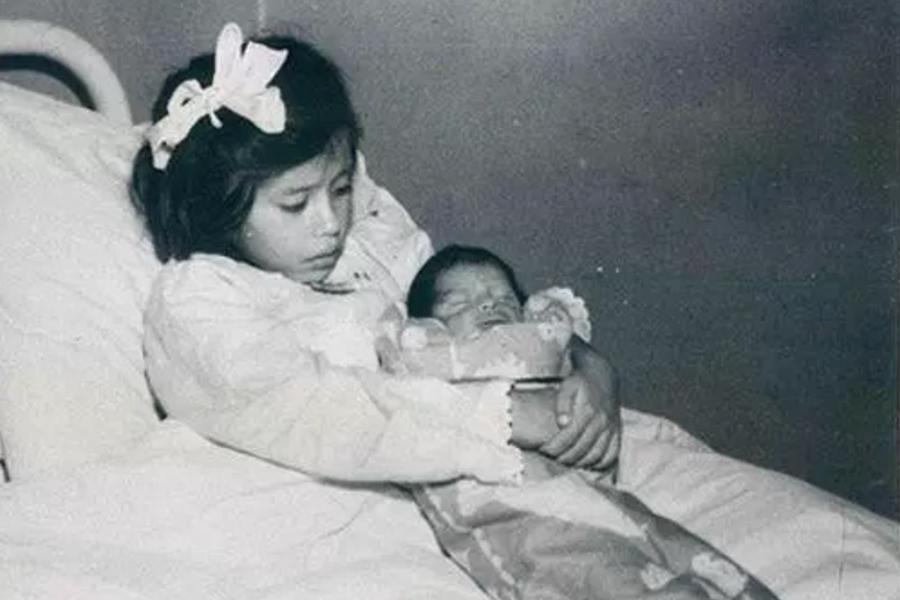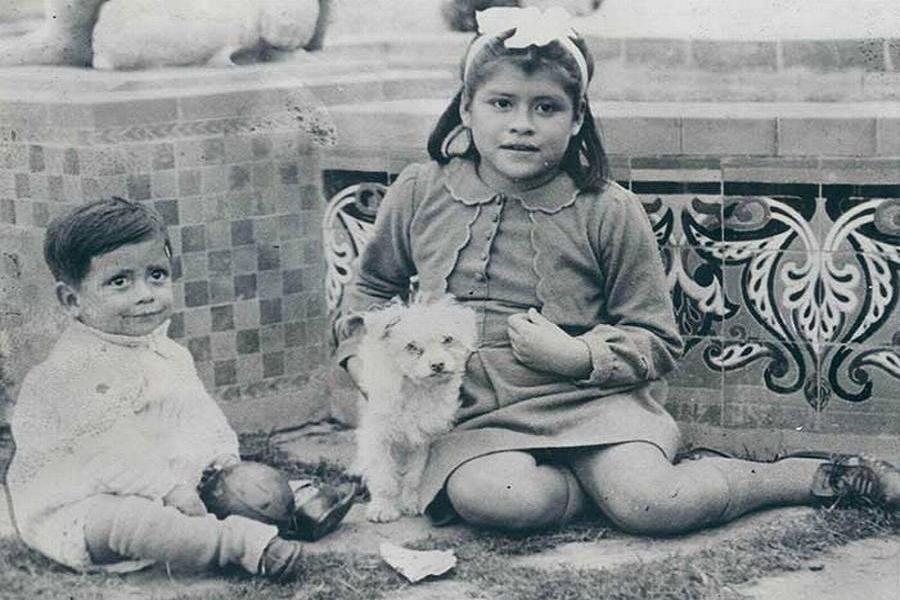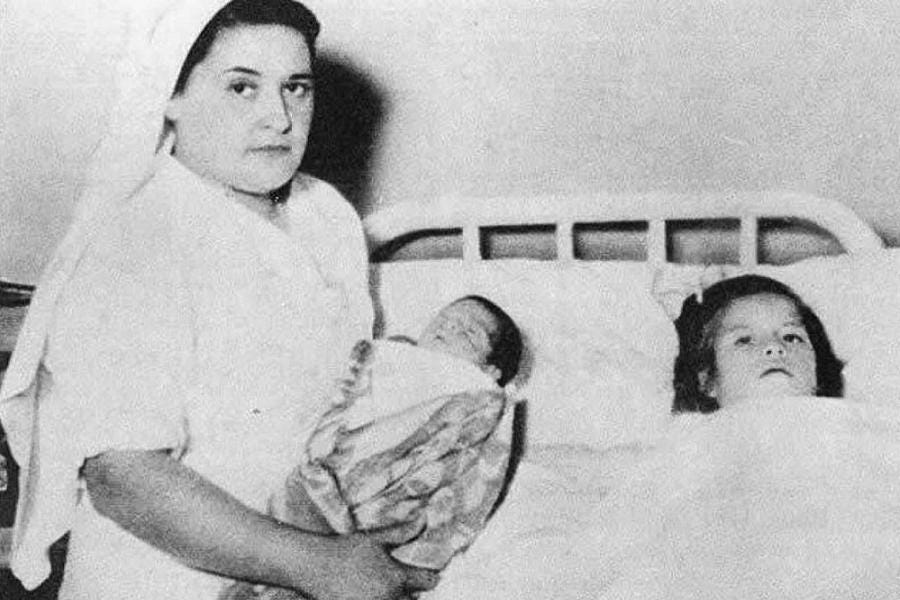The story of the world's youngest mother is one that evokes both awe and concern. This article delves into the remarkable circumstances surrounding this unique case, examining the profound implications of such an early pregnancy and the societal reactions it has sparked. Lina Medina, who became a mother at an extraordinarily young age, challenges our understanding of childhood and motherhood, raising questions about the responsibilities that come with such a role.
In this comprehensive exploration, we will uncover the details of Lina Medina's life, her background, and the medical and psychological impacts of her early motherhood. We will also analyze the cultural and ethical considerations surrounding this sensitive topic. By examining various facets, we aim to provide readers with a well-rounded perspective, ensuring that they are both informed and engaged.
As we progress through this article, we will highlight the importance of education and awareness regarding reproductive health, particularly among young individuals. Understanding the realities of early pregnancy can help prevent similar situations in the future, empowering youth with the knowledge to make informed decisions about their bodies and lives.
Read also:Exploring The Life And Persona Of James Caan Height Weight And Legacy
Contents Overview
- Life Story of the Youngest Mother
- Personal Details and Information
- The Historical Context of the Youngest Mother
- The Effects of Early Motherhood
- Cultural Perspectives on Early Motherhood
- Health Concerns for Young Mothers
- Promoting Education and Awareness
- Final Thoughts
Life Story of the Youngest Mother
The record for the youngest mother in history belongs to Lina Medina, who gave birth in 1939 at the astonishing age of five years and seven months. Born in Peru, Lina's case captured global attention due to its unprecedented nature. Her story continues to provoke questions about the biological and societal implications of such an early pregnancy, inviting discussions on child welfare and the rights of young individuals.
Background and Early Life
Lina Medina was born on September 23, 1933, in a small village in Peru. Her life took an unexpected turn when, at an age when most children are still playing with toys, her body began to develop at an unusually rapid pace due to a rare condition known as precocious puberty. This condition caused her to experience puberty far earlier than the norm, leading to her pregnancy at such a tender age. Her story serves as a poignant reminder of the complexities of human biology and the challenges faced by young individuals in vulnerable situations.
Personal Details and Information
| Name | Lina Medina |
|---|---|
| Date of Birth | September 23, 1933 |
| Country | Peru |
| Age at Birth | 5 years, 7 months |
| Child's Name | Gerardo Medina |
The Historical Context of the Youngest Mother
Lina's pregnancy was discovered when her parents sought medical attention for abdominal pain. Upon examination, doctors were astonished to find that she was pregnant. On May 14, 1939, Lina delivered a healthy baby boy via cesarean section, an event that shocked the medical community and sparked ethical debates about child welfare and the responsibilities of parenthood. The identity of the father remains a mystery, with investigations proving inconclusive. However, it is widely suspected that Lina was a victim of sexual abuse, adding a somber layer to her already complex story.
The Effects of Early Motherhood
Becoming a mother at such a young age has far-reaching consequences for both the mother and the child. The psychological, emotional, and physical impacts of early motherhood are profound and can include:
- Emotional Strain: Young mothers often experience feelings of isolation, stress, and anxiety as they navigate the challenges of parenthood while still developing emotionally themselves.
- Education Interruption: Early motherhood frequently disrupts educational pursuits, limiting future opportunities for personal and professional growth.
- Health Risks: Young mothers face significant health risks during pregnancy and childbirth, including complications such as preterm labor, low birth weight, and other conditions that can endanger both mother and child.
Cultural Perspectives on Early Motherhood
The cultural backdrop against which Lina's story unfolded plays a crucial role in understanding her situation. In many societies, early marriage and childbirth are still normalized due to deeply ingrained traditional beliefs. Such practices can perpetuate cycles of poverty and restrict women's rights, making it imperative to address these cultural attitudes to prevent similar occurrences in the future.
Lina's case elicited a mixed societal response, with some expressing horror at the circumstances and others viewing her as a curiosity. This media sensationalism underscores the need for a more compassionate and informed approach to addressing the challenges faced by young mothers and vulnerable populations.
Read also:Exploring Dez Bryants Financial Empire And Football Legacy
Health Concerns for Young Mothers
Medical professionals emphasize the importance of understanding the physical and psychological implications of early motherhood. Key concerns include:
- Pregnancy Complications: Young mothers are at a higher risk of experiencing complications such as preterm labor, low birth weight, and other issues that can compromise the health of both mother and child.
- Long-term Health Implications: Early pregnancies can lead to chronic health issues, affecting the long-term well-being of both the mother and the child.
- Psychological Challenges: The emotional burden of raising a child at a young age can lead to mental health challenges, including postpartum depression and anxiety disorders.
Promoting Education and Awareness
Education is a powerful tool in preventing early pregnancies. By equipping young individuals with comprehensive knowledge about reproductive health, risks, and their rights, we empower them to make informed decisions about their lives. Schools and communities should prioritize robust sex education programs that encompass:
- A thorough understanding of human reproduction
- Awareness of consent, personal boundaries, and rights
- Access to contraceptive methods and resources
Creating an environment that fosters education and open dialogue is essential in mitigating the risks associated with early motherhood and enhancing the overall well-being of young individuals.
Final Thoughts
In conclusion, the story of Lina Medina, the world's youngest mother, serves as a powerful reminder of the complexities surrounding early motherhood. It highlights critical issues related to childhood, societal expectations, and the need for protective measures for vulnerable populations. It underscores the importance of education and awareness in preventing early pregnancies and addressing cultural attitudes that perpetuate such occurrences.
We invite readers to reflect on the implications of this story and advocate for educational programs that empower young individuals. Please share your thoughts in the comments below and consider spreading awareness about this vital issue by sharing this article with others.
Thank you for reading, and we look forward to engaging with you in more meaningful discussions on topics that matter.


